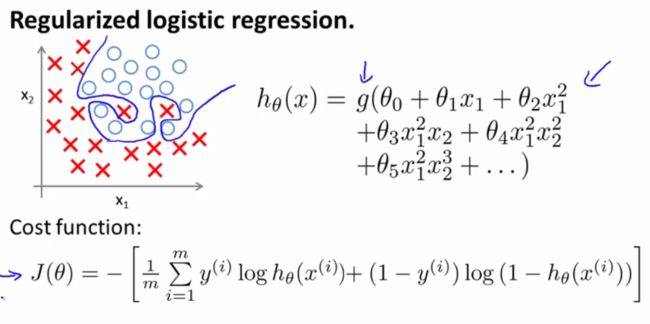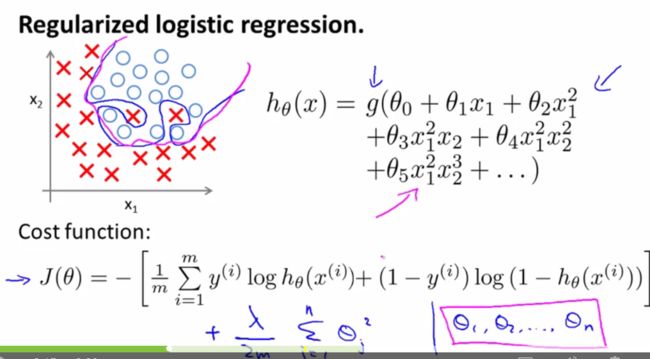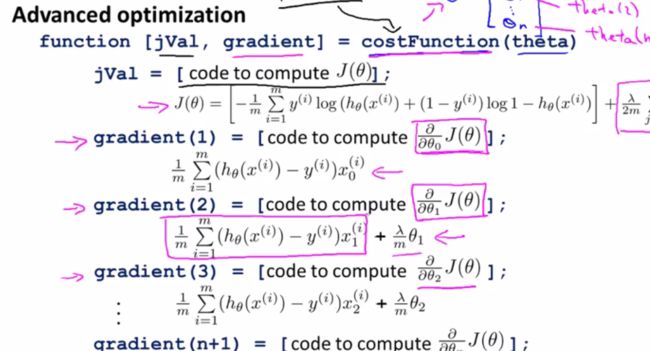- tksheet:强大的Python Tkinter表格组件
江连日Silver
tksheet:强大的PythonTkinter表格组件tksheetPython3.6+tkintertablewidgetfordisplayingtabulardata项目地址:https://gitcode.com/gh_mirrors/tk/tksheet项目基础介绍与编程语言tksheet是一个基于Python的Tkinter库开发的高性能表格控件,专为展示和编辑大量的tabular数
- tksheet: 强大的Python Tkinter表格控件
柏珂卿
tksheet:强大的PythonTkinter表格控件项目地址:https://gitcode.com/gh_mirrors/tk/tksheet在探索Python的GUI库时,你会发现tksheet是一个引人注目的名字。它不仅仅是一款简单的表格插件;实际上,这是一个功能丰富且优化得当的数据管理工具,尤其适合那些依赖于Tkinter构建界面的应用开发者。项目介绍tksheet是基于Tkinter
- CAP 公理解析:分布式系统中的一致性、可用性与分区容错性
Vitalia
系统设计分布式系统CAP
文章目录1.CAP公理的核心概念1.1一致性(Consistency)1.2可用性(Availability)1.3分区容错性(PartitionTolerance)2.CAP公理的三种选择2.1CA(一致性+可用性)2.2CP(一致性+分区容错性)2.3AP(可用性+分区容错性)3.CAP公理的实际应用3.1CP系统(一致性+分区容错性)示例1:ZooKeeper示例2:etcd3.2AP系统(
- 【Python安装】2024年最新下载安装教程!详细步骤,有这一篇就够了!!!
「已注销」
python开发语言
(点击领取Python安装包+学习资料)Python安装说明1.访问Python官网首先,访问Python的官方网站:WelcometoPython.org。2.下载Python安装程序在官网首页,找到“Downloads”部分。根据你的操作系统(Windows,macOS,Linux等)选择合适的版本下载。对于大多数用户,推荐下载最新版本的Python3.x(例如Python3.9或更高版本)。
- Python+Selenium 使用webdriver-manager解决浏览器与驱动不匹配所带来自动化无法执行的问题_web自动化最新版本浏览器驱动,驱动连接不了浏览器
2401_84140040
程序员python学习面试
做了那么多年开发,自学了很多门编程语言,我很明白学习资源对于学一门新语言的重要性,这些年也收藏了不少的Python干货,对我来说这些东西确实已经用不到了,但对于准备自学Python的人来说,或许它就是一个宝藏,可以给你省去很多的时间和精力。别在网上瞎学了,我最近也做了一些资源的更新,只要你是我的粉丝,这期福利你都可拿走。我先来介绍一下这些东西怎么用,文末抱走。(1)Python所有方向的学习路线(
- Windows的目录你了解吗?
Tan程序员
windows
本文将介绍Windows系统中的目录,不使用Windows系统的人可以退出了。本文目录目录是什么创建目录提示:本篇文章很短的,一两分钟就能读完哦!目录是什么目录可不是文件夹,只是看起来像文件夹罢了。目录其实应该说是一种文件,是一种特殊文件,叫做目录文件,简称为目录。还有,目录并不是真的把文件放在它里面,上文讲了,目录是特殊文件,其实它把文件放在了其他位置,而不是直接存入。但现在大多数人都把目录和文
- python常用内置函数
Tan程序员
python开发语言
函数作用print()打印输出help()用于查看函数或模块用途的详细说明list()将一个可迭代对象转换成列表tuple()将一个可迭代对象转换成元组set()将一个可迭代对象转化成集合dict()用于创建一个新字典sorted()将一个序列排序,返回排序后的序列reversed()将一个序列反转,返回翻转序列后的迭代器range()用于生成可迭代对象的数值列表的表示eval()执行字符串类型的
- 解决python tkinter库:_tkinter.TclError: bad window path name “.!button“类似错误
Tan程序员
python开发语言
本文目录报错信息问题分析问题解决本文将介绍怎么解决pythontkinter库_tkinter.TclError:badwindowpathname".!toplevel.!button3"错误(以及类似错误)报错信息我们在使用tkinter库时可能会遇到类似这样的问题:_tkinter.TclError:badpathname".!button"_tkinter.TclError:badwind
- 2024 年java 和Python 开发工具系列激活码( 持续更新)
hhhaadei
javaide
7EX1SHUD24-eyJsaWNlbnNlSWQiOiI3RVgxU0hVRDI0IiwibGljZW5zZWVOYW1lIjoibWFvIHplZG9uZyIsImxpY2Vuc2VlVHlwZSI6IlBFUlNPTkFMIiwiYXNzaWduZWVOYW1lIjoiIiwiYXNzaWduZWVFbWFpbCI6IiIsImxpY2Vuc2VSZXN0cmljdGlvbiI6IiIsI
- 工程化与框架系列(31)--前端依赖管理实践
一进制ᅟᅠ
前端工程化与框架前端
前端依赖管理实践引言前端依赖管理是现代Web开发中的重要环节。本文将深入探讨前端依赖管理的最佳实践,包括包管理工具、版本控制、依赖分析和优化等方面,帮助开发者更好地管理项目依赖。依赖管理概述前端依赖管理主要包括以下方面:包管理工具:npm、yarn、pnpm等版本控制:语义化版本、锁文件等依赖分析:依赖树、循环依赖等依赖优化:体积优化、重复依赖等安全管理:漏洞检测、更新维护等依赖管理工具实现依赖分
- MySQL Buffer Pool、Undo Log、脏页详解
学堂在线
Mysql数据库mysql数据库
文章目录1.BufferPool2.UndoLog3.脏页(DirtyPage)三者的协同工作常见问题总结MySQL中的BufferPool、UndoLog和脏页是InnoDB存储引擎的核心组件,共同保障了事务处理的高效性、一致性与持久性。以下是它们的详细解释及关联:1.BufferPool作用:BufferPool是InnoDB的内存缓存区域,用于缓存数据页和索引页,减少直接访问磁盘的开销,显著
- Flutter桌面开发(三、widget布局与表单)
左钦杨
flutterjavascriptandroid
一、流式布局横铺或者竖着铺Row或者Column这俩都是有Children的就是可以有多个子元素例子:Row(Children:[Container(),Container(),Container(),])Container类似于html中的DIV可以设置背景border和宽度高度Container(decoration:BoxDecoration(image:DecorationImage(im
- 「QT」布局类 之 QHBoxLayout 水平布局类
何曾参静谧
「QT」QT5程序设计qt开发语言
✨博客主页何曾参静谧的博客(✅关注、点赞、⭐收藏、转发)文章专栏「QT」QT5程序设计全部专栏(专栏会有变化,以最新发布为准)「Win」Windows程序设计「IDE」集成开发环境「UG/NX」BlockUI集合「C/C++」C/C++程序设计「DSA」数据结构与算法「UG/NX」NX二次开发「QT」QT5程序设计「File」数据文件格式「UG/NX」NX定制开发「Py」Python程序设计「Ma
- python+flask实现360全景图和stl等多种格式模型浏览
mosquito_lover1
python
1.安装依赖pipinstallflask2.创建Flask应用创建一个基本的Flask应用,并设置路由来处理不同的文件类型。fromflaskimportFlask,render_template,send_from_directoryapp=Flask(__name__)#设置静态文件路径app.static_folder='static'@app.route('/')defindex():r
- AI 之路——数据分析(1)Pandas小结与框架整理
Robin_Pi
机器学习之路数据分析数据分析python人工智能可视化
目录1.写在前面1.1AI之路:1.2工具/技能:2.数据分析2.1数据分析的流程2.2数据的基本操作方法2.2.1Pandas概览2.2.2使用Pandas操作数据的核心(1)选择数据(2)操作数据2.2.2数据详解3.写在最后1.写在前面主要是阶段性框架总结1.1AI之路:数据分析——机器学习——深度学习——CV/NLP1.2工具/技能:Python、NumPy、Pandas、Matplotl
- 微信小程序开发---的生命周期函数
J总裁的小芒果
微信小程序小程序
onLaunch:小程序初始化完成时触发,全局只触发一次。适合进行一些初始化操作。onShow:小程序启动或者从后台进入前台时触发。每次小程序进入前台时都会触发。onHide:小程序从前台进入后台时触发,适合做一些暂停操作或存储数据等。onError:小程序发生错误时触发,接受一个错误信息作为参数,用于捕获小程序中的错误。onPageNotFound:小程序页面不存在时触发,通常是用户访问了一个不
- Python爬虫教程:如何通过接口批量下载视频封面(FFmpeg技术实现)
Python爬虫项目
python爬虫开发语言数据库数据分析scrapyselenium
引言随着在线视频平台的蓬勃发展,视频封面作为视频内容的预览图,一直以来都是观众对视频的第一印象。在爬取视频资源时,很多开发者和研究者往往只关注视频本身,而忽略了视频封面。实际上,视频封面不仅能提供重要的信息(例如视频标题、主题或情感等),而且它们也能作为数据集中的重要属性,用于视频分类、推荐系统等应用。在这篇博客中,我们将深入探讨如何使用Python通过接口批量下载视频封面,利用FFmpeg等技术
- AI 大模型应用数据中心的数据分析架构
AI天才研究院
计算AI大模型企业级应用开发实战DeepSeekR1&大数据AI人工智能大模型javapythonjavascriptkotlingolang架构人工智能大厂程序员硅基计算碳基计算认知计算生物计算深度学习神经网络大数据AIGCAGILLM系统架构设计软件哲学Agent程序员实现财富自由
《AI大模型应用数据中心的数据分析架构》关键词:数据中心、AI大模型、数据分析、架构设计、应用实践摘要:本文深入探讨了AI大模型在数据中心数据分析架构中的应用,从数据中心背景、AI大模型架构与技术、数据处理与分析技术、AI大模型应用与实践等多个方面,全面解析了AI大模型如何助力数据中心实现高效数据分析和智能处理,为读者提供了系统的理论指导和实际案例分析。第一部分:数据中心背景与AI大模型概述第1章
- 4-001:MySQL 中的索引数量是否越多越好?为什么?
盖盖衍上_染染熊_代码集
00-刷题mysql数据库
MySQL中的索引并不是越多越好,索引数量要合理控制!过多索引的影响增加存储开销每个索引都会占用额外的磁盘空间,索引多了,存储成本增加。降低INSERT、UPDATE、DELETE性能任何涉及数据修改的操作,都需要同时更新索引,影响性能。示例:INSERTINTOusers(id,name)VALUES(1,'Tom');,如果users表有多个索引,则插入时每个索引都需要更新,影响插入速度。可能
- 简单了解WIndow和Linux的路径含义
alive903
Linuxlinuxwindows
目录1>路径概念2>绝对路径2.1>window绝对路径2.2>Linux绝对路径3>相对路径3.1>window相对路径3.2>Linux相对路径很高兴你能看到这篇文章,同时我的语雀文档也更新了许多嵌入式系列的学习笔记希望能帮到你:https://www.yuque.com/alive-m4b9n1>路径概念路径是用来描述一个文件或目录在文件系统中的位置的方式。路径可以是文件系统中的唯一标识符,
- python vuejs聊天室_ws模块指南+Vue在线聊天室
无1234
pythonvuejs聊天室
简介ws模块是Node端的一个WebSocket协议的实现,该协议允许客户端(一般是浏览器)持久化和服务端的连接.这种可以持续连接的特性使得WebScoket特别适合用于适合用于游戏或者聊天室等使用场景.ws模块相较于其他基于WebSocket协议的模块来说非常的纯粹.他只关注基于WebSocket协议的实现,其他例如Socket.io提供了回退手段,当WebSocket无法使用的时候会利用轮询来
- Python的struct模块
smilelance
Pythonpythonstructalignmentstringbufferexception
struct模块提供将二进制数据转换为结构化数据或相反的功能,它定义了以下函数和异常:exceptionstruct.errorstruct.pack(fmt,v1,v2,…)返回一个string,string由v1,v2…经过给出的格式fmt组成,参数的个数有和类型要和给出的格式一一对应struct.pack_into(fmt,buffer,offset,v1,v2,…)按照格式fmt将v1,v
- LeetCode详解C++版
纵深
算法算法数据结构c++
打算把LeetCode上面的题都实现一遍,每日两题LeetCode目录1.两数之和2.两数相加11.盛最多水的容器15.三数之和33.搜索旋转排序数组34.在排序数组中查找元素的第一个和最后一个位置35.搜索插入位置53.最大子数组和64.最小路径和70.爬楼梯74.搜索二维矩阵82.删除排序链表中的重复元素II88.合并两个有序数组153.寻找旋转排序数组中的最小值162.寻找峰值167.两数之
- 设计模式学习手册(四)(原型模式)
勇敢一点♂
设计模式学习原型模式
写在前面书接上文设计模式学习手册(三)(建造者模式)原型模式简单来说就是复制一个已存在的原型实例,并对其进行必要的修改,来创建新的对象。原型模式通常会有一个clone()方法用于复制对象。优点:直接复制现有对象,避免了重复的初始化过程,减少开销。可以动态地改变克隆对象的属性,适应不同的需求。无需关心对象的构造细节,通过复制现有实例即可创建新对象。缺点:会涉及到编程中的一个经典问题:深浅拷贝Clon
- python的一些基础知识学习
勇敢一点♂
python学习
列表(list)和元组(tuple)列表和元组,都是一个可以放置任意数据类型的有序集合,比如里面可以同时包含int和string类型都是有序的列表是动态的,长度大小不固定,可以随意地增加、删减或者改变元素。元组是静态的,长度大小固定,无法增加删减或者改变常规操作关于赋值,list可以很轻松的根据索引赋值,但是tuple不可以listA=[1,2,3,4]listA[3]=10print(listA
- 《Web 应用项目开发》课程心得体会:从理论到实战,开启 Web 开发新征程
m0_74824091
前端
在信息技术飞速发展的当下,Web应用已然渗透到生活的方方面面,从日常网购、社交娱乐,到在线办公、学习平台,无一不是Web应用的成果。怀着对互联网技术的热忱与憧憬,我踏入了《Web应用项目开发》这门课程,历经数月的沉浸式学习与实践,收获远超预期,犹如经历一场脱胎换骨的蜕变,以下便是我在这门课程中的全面心得体会。夯实基础:Web技术初相识课程伊始,仿若踏入一片未知的技术丛林,HTML、CSS和Java
- PyTorch 深度学习实战(13):Proximal Policy Optimization (PPO) 算法
进取星辰
PyTorch深度学习实战深度学习pytorch算法
在上一篇文章中,我们介绍了Actor-Critic算法,并使用它解决了CartPole问题。本文将深入探讨ProximalPolicyOptimization(PPO)算法,这是一种更稳定、更高效的策略优化方法。我们将使用PyTorch实现PPO算法,并应用于经典的CartPole问题。一、PPO算法基础PPO是OpenAI提出的一种强化学习算法,旨在解决策略梯度方法中的训练不稳定问题。PPO通过
- 3月14日复盘
四万二千
python人工智能
挑战AI全栈第四天!(终于双休了)容器python中默认有4种容器列表list字典dict集合set元组tuple一、Python列表(list)Python支持多种复合数据类型,可将不同值组合在一起。最常用的列表,是用方括号标注,逗号分隔的一组值。列表可以包含不同类型的元素,但一般情况下,各个元素的类型相同列表是一种可以存储任意个各种类型的序列容器列表内的数据有先后顺序关系列表是可变的容器1.列
- 【十五】Golang 结构体
张胤尘
Golanggolang开发语言后端
欢迎来到张胤尘的开源技术站开源如江河,汇聚众志成。代码似星辰,照亮行征程。开源精神长,传承永不忘。携手共前行,未来更辉煌文章目录结构体定义初始化使用字段名初始化按字段顺序初始化使用`new`函数初始化结构体零值访问结构体可访问性访问方式结构体方法方法的调用可访问性访问方式方法接收者值接收者指针接收者其他场景结构体的比较匿名结构体结构体嵌套嵌套结构体中的方法匿名字段序列化与反序列化常见的序列化格式字
- python内置函数 V
棠越精进
pythonpython开发语言
python内置函数VPython解释器内置了很多函数和类型,任何时候都能使用。V名称描述vars返回当前局部符号表的字典。vars()vars(object)返回模块、类、实例或任何其它具有__dict__属性的对象的__dict__属性。模块和实例这样的对象具有可更新的__dict__属性;但是,其它对象的__dict__属性可能会设为限制写入(例如,类会使用types.MappingProx
- JVM StackMapTable 属性的作用及理解
lijingyao8206
jvm字节码Class文件StackMapTable
在Java 6版本之后JVM引入了栈图(Stack Map Table)概念。为了提高验证过程的效率,在字节码规范中添加了Stack Map Table属性,以下简称栈图,其方法的code属性中存储了局部变量和操作数的类型验证以及字节码的偏移量。也就是一个method需要且仅对应一个Stack Map Table。在Java 7版
- 回调函数调用方法
百合不是茶
java
最近在看大神写的代码时,.发现其中使用了很多的回调 ,以前只是在学习的时候经常用到 ,现在写个笔记 记录一下
代码很简单:
MainDemo :调用方法 得到方法的返回结果
- [时间机器]制造时间机器需要一些材料
comsci
制造
根据我的计算和推测,要完全实现制造一台时间机器,需要某些我们这个世界不存在的物质
和材料...
甚至可以这样说,这种材料和物质,我们在反应堆中也无法获得......
- 开口埋怨不如闭口做事
邓集海
邓集海 做人 做事 工作
“开口埋怨,不如闭口做事。”不是名人名言,而是一个普通父亲对儿子的训导。但是,因为这句训导,这位普通父亲却造就了一个名人儿子。这位普通父亲造就的名人儿子,叫张明正。 张明正出身贫寒,读书时成绩差,常挨老师批评。高中毕业,张明正连普通大学的分数线都没上。高考成绩出来后,平时开口怨这怨那的张明正,不从自身找原因,而是不停地埋怨自己家庭条件不好、埋怨父母没有给他创造良好的学习环境。
- jQuery插件开发全解析,类级别与对象级别开发
IT独行者
jquery开发插件 函数
jQuery插件的开发包括两种: 一种是类级别的插件开发,即给
jQuery添加新的全局函数,相当于给
jQuery类本身添加方法。
jQuery的全局函数就是属于
jQuery命名空间的函数,另一种是对象级别的插件开发,即给
jQuery对象添加方法。下面就两种函数的开发做详细的说明。
1
、类级别的插件开发 类级别的插件开发最直接的理解就是给jQuer
- Rome解析Rss
413277409
Rome解析Rss
import java.net.URL;
import java.util.List;
import org.junit.Test;
import com.sun.syndication.feed.synd.SyndCategory;
import com.sun.syndication.feed.synd.S
- RSA加密解密
无量
加密解密rsa
RSA加密解密代码
代码有待整理
package com.tongbanjie.commons.util;
import java.security.Key;
import java.security.KeyFactory;
import java.security.KeyPair;
import java.security.KeyPairGenerat
- linux 软件安装遇到的问题
aichenglong
linux遇到的问题ftp
1 ftp配置中遇到的问题
500 OOPS: cannot change directory
出现该问题的原因:是SELinux安装机制的问题.只要disable SELinux就可以了
修改方法:1 修改/etc/selinux/config 中SELINUX=disabled
2 source /etc
- 面试心得
alafqq
面试
最近面试了好几家公司。记录下;
支付宝,面试我的人胖胖的,看着人挺好的;博彦外包的职位,面试失败;
阿里金融,面试官人也挺和善,只不过我让他吐血了。。。
由于印象比较深,记录下;
1,自我介绍
2,说下八种基本类型;(算上string。楼主才答了3种,哈哈,string其实不是基本类型,是引用类型)
3,什么是包装类,包装类的优点;
4,平时看过什么书?NND,什么书都没看过。。照样
- java的多态性探讨
百合不是茶
java
java的多态性是指main方法在调用属性的时候类可以对这一属性做出反应的情况
//package 1;
class A{
public void test(){
System.out.println("A");
}
}
class D extends A{
public void test(){
S
- 网络编程基础篇之JavaScript-学习笔记
bijian1013
JavaScript
1.documentWrite
<html>
<head>
<script language="JavaScript">
document.write("这是电脑网络学校");
document.close();
</script>
</h
- 探索JUnit4扩展:深入Rule
bijian1013
JUnitRule单元测试
本文将进一步探究Rule的应用,展示如何使用Rule来替代@BeforeClass,@AfterClass,@Before和@After的功能。
在上一篇中提到,可以使用Rule替代现有的大部分Runner扩展,而且也不提倡对Runner中的withBefores(),withAfte
- [CSS]CSS浮动十五条规则
bit1129
css
这些浮动规则,主要是参考CSS权威指南关于浮动规则的总结,然后添加一些简单的例子以验证和理解这些规则。
1. 所有的页面元素都可以浮动 2. 一个元素浮动后,会成为块级元素,比如<span>,a, strong等都会变成块级元素 3.一个元素左浮动,会向最近的块级父元素的左上角移动,直到浮动元素的左外边界碰到块级父元素的左内边界;如果这个块级父元素已经有浮动元素停靠了
- 【Kafka六】Kafka Producer和Consumer多Broker、多Partition场景
bit1129
partition
0.Kafka服务器配置
3个broker
1个topic,6个partition,副本因子是2
2个consumer,每个consumer三个线程并发读取
1. Producer
package kafka.examples.multibrokers.producers;
import java.util.Properties;
import java.util.
- zabbix_agentd.conf配置文件详解
ronin47
zabbix 配置文件
Aliaskey的别名,例如 Alias=ttlsa.userid:vfs.file.regexp[/etc/passwd,^ttlsa:.:([0-9]+),,,,\1], 或者ttlsa的用户ID。你可以使用key:vfs.file.regexp[/etc/passwd,^ttlsa:.: ([0-9]+),,,,\1],也可以使用ttlsa.userid。备注: 别名不能重复,但是可以有多个
- java--19.用矩阵求Fibonacci数列的第N项
bylijinnan
fibonacci
参考了网上的思路,写了个Java版的:
public class Fibonacci {
final static int[] A={1,1,1,0};
public static void main(String[] args) {
int n=7;
for(int i=0;i<=n;i++){
int f=fibonac
- Netty源码学习-LengthFieldBasedFrameDecoder
bylijinnan
javanetty
先看看LengthFieldBasedFrameDecoder的官方API
http://docs.jboss.org/netty/3.1/api/org/jboss/netty/handler/codec/frame/LengthFieldBasedFrameDecoder.html
API举例说明了LengthFieldBasedFrameDecoder的解析机制,如下:
实
- AES加密解密
chicony
加密解密
AES加解密算法,使用Base64做转码以及辅助加密:
package com.wintv.common;
import javax.crypto.Cipher;
import javax.crypto.spec.IvParameterSpec;
import javax.crypto.spec.SecretKeySpec;
import sun.misc.BASE64Decod
- 文件编码格式转换
ctrain
编码格式
package com.test;
import java.io.File;
import java.io.FileInputStream;
import java.io.FileOutputStream;
import java.io.IOException;
import java.io.InputStream;
import java.io.OutputStream;
- mysql 在linux客户端插入数据中文乱码
daizj
mysql中文乱码
1、查看系统客户端,数据库,连接层的编码
查看方法: http://daizj.iteye.com/blog/2174993
进入mysql,通过如下命令查看数据库编码方式: mysql> show variables like 'character_set_%'; +--------------------------+------
- 好代码是廉价的代码
dcj3sjt126com
程序员读书
长久以来我一直主张:好代码是廉价的代码。
当我跟做开发的同事说出这话时,他们的第一反应是一种惊愕,然后是将近一个星期的嘲笑,把它当作一个笑话来讲。 当他们走近看我的表情、知道我是认真的时,才收敛一点。
当最初的惊愕消退后,他们会用一些这样的话来反驳: “好代码不廉价,好代码是采用经过数十年计算机科学研究和积累得出的最佳实践设计模式和方法论建立起来的精心制作的程序代码。”
我只
- Android网络请求库——android-async-http
dcj3sjt126com
android
在iOS开发中有大名鼎鼎的ASIHttpRequest库,用来处理网络请求操作,今天要介绍的是一个在Android上同样强大的网络请求库android-async-http,目前非常火的应用Instagram和Pinterest的Android版就是用的这个网络请求库。这个网络请求库是基于Apache HttpClient库之上的一个异步网络请求处理库,网络处理均基于Android的非UI线程,通
- ORACLE 复习笔记之SQL语句的优化
eksliang
SQL优化Oracle sql语句优化SQL语句的优化
转载请出自出处:http://eksliang.iteye.com/blog/2097999
SQL语句的优化总结如下
sql语句的优化可以按照如下六个步骤进行:
合理使用索引
避免或者简化排序
消除对大表的扫描
避免复杂的通配符匹配
调整子查询的性能
EXISTS和IN运算符
下面我就按照上面这六个步骤分别进行总结:
- 浅析:Android 嵌套滑动机制(NestedScrolling)
gg163
android移动开发滑动机制嵌套
谷歌在发布安卓 Lollipop版本之后,为了更好的用户体验,Google为Android的滑动机制提供了NestedScrolling特性
NestedScrolling的特性可以体现在哪里呢?<!--[if !supportLineBreakNewLine]--><!--[endif]-->
比如你使用了Toolbar,下面一个ScrollView,向上滚
- 使用hovertree菜单作为后台导航
hvt
JavaScriptjquery.nethovertreeasp.net
hovertree是一个jquery菜单插件,官方网址:http://keleyi.com/jq/hovertree/ ,可以登录该网址体验效果。
0.1.3版本:http://keleyi.com/jq/hovertree/demo/demo.0.1.3.htm
hovertree插件包含文件:
http://keleyi.com/jq/hovertree/css
- SVG 教程 (二)矩形
天梯梦
svg
SVG <rect> SVG Shapes
SVG有一些预定义的形状元素,可被开发者使用和操作:
矩形 <rect>
圆形 <circle>
椭圆 <ellipse>
线 <line>
折线 <polyline>
多边形 <polygon>
路径 <path>
- 一个简单的队列
luyulong
java数据结构队列
public class MyQueue {
private long[] arr;
private int front;
private int end;
// 有效数据的大小
private int elements;
public MyQueue() {
arr = new long[10];
elements = 0;
front
- 基础数据结构和算法九:Binary Search Tree
sunwinner
Algorithm
A binary search tree (BST) is a binary tree where each node has a Comparable key (and an associated value) and satisfies the restriction that the key in any node is larger than the keys in all
- 项目出现的一些问题和体会
Steven-Walker
DAOWebservlet
第一篇博客不知道要写点什么,就先来点近阶段的感悟吧。
这几天学了servlet和数据库等知识,就参照老方的视频写了一个简单的增删改查的,完成了最简单的一些功能,使用了三层架构。
dao层完成的是对数据库具体的功能实现,service层调用了dao层的实现方法,具体对servlet提供支持。
&
- 高手问答:Java老A带你全面提升Java单兵作战能力!
ITeye管理员
java
本期特邀《Java特种兵》作者:谢宇,CSDN论坛ID: xieyuooo 针对JAVA问题给予大家解答,欢迎网友积极提问,与专家一起讨论!
作者简介:
淘宝网资深Java工程师,CSDN超人气博主,人称“胖哥”。
CSDN博客地址:
http://blog.csdn.net/xieyuooo
作者在进入大学前是一个不折不扣的计算机白痴,曾经被人笑话过不懂鼠标是什么,







